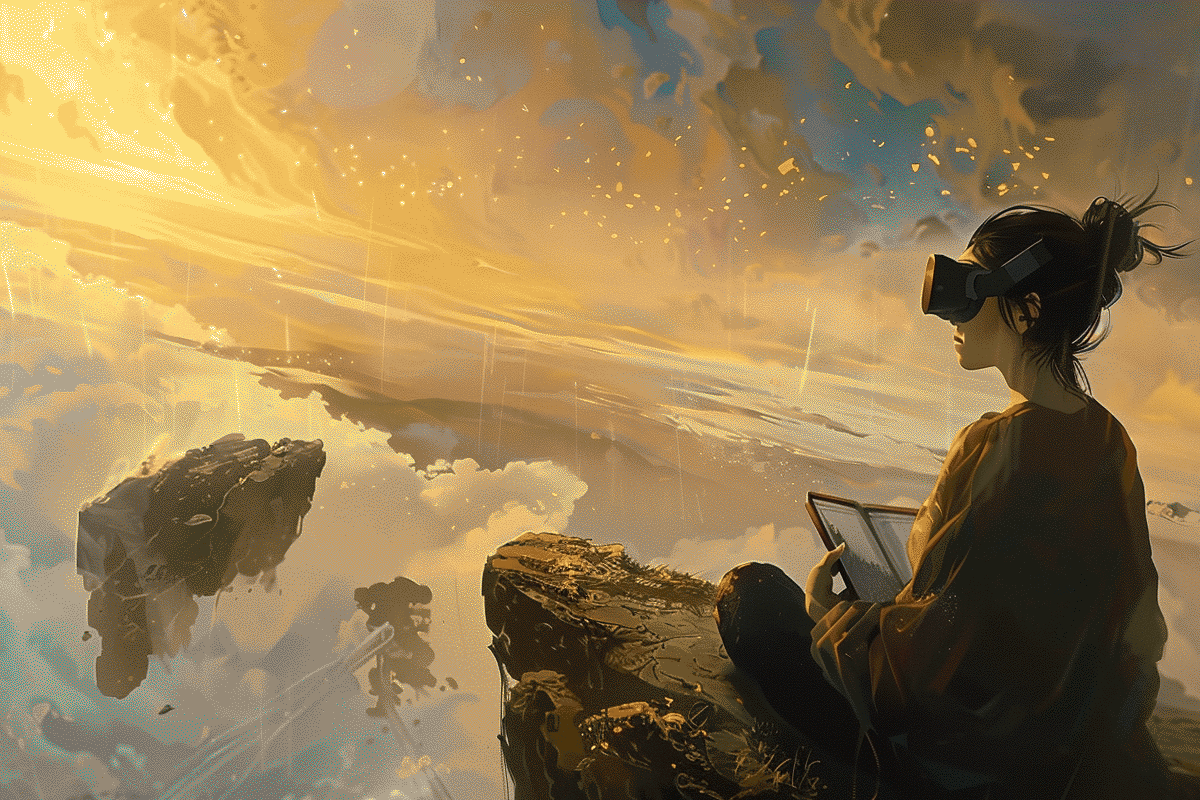AI Storytellers: Ushering in a New Era of Digital Narration
- 3 minutes read - 608 words
Table of Contents
Artificial Intelligence (AI) has emerged as a transformative force in the rapidly advancing field of technology, significantly impacting various sectors through its innovative applications. Among these developments, the rise of AI storytellers marks a new era in digital narration.
AI storytellers are sophisticated computer programs that generate narratives using machine learning and natural language processing. They can autonomously create short stories, novels, scripts, and news articles. This technological advancement is changing how we produce content and challenging traditional notions of creativity and authorship.
While AI storytelling might appear futuristic, it has already become a reality. Several AI storytellers have gained attention for their narrative capabilities. For instance, AI-powered author ‘Shelley’ is known for generating horror stories, while ‘Philip M. Parker’ has authored numerous books using AI algorithms.
Mechanism of AI Storytelling
AI storytelling involves feeding the AI system a vast amount of data, including books, articles, and other written materials. The AI then employs machine learning algorithms to discern these texts’ structure, style, and language. Once these patterns are understood, the AI can generate unique stories.
Advantages of AI Storytellers
AI storytellers offer several advantages. They can produce content rapidly and efficiently, making them valuable for industries requiring high volumes of content, such as advertising and journalism. They can also create personalized stories tailored to user preferences, enhancing reader engagement.
AI based visual storytelling allows for rapid story board exploration and development.
Challenges and Critical Questions
However, AI storytelling also raises significant questions. Can AI genuinely replicate human creativity? Can it comprehend and convey emotions as effectively as human authors? These questions underscore the ongoing debate about the role of AI in creative fields.
AI storytellers, while capable of mimicking human writing styles and generating grammatically correct sentences, lack the personal experiences and emotions that often drive compelling storytelling.
AI can analyze data and recognize patterns but cannot experience joy, sorrow, or empathy—elements essential to storytelling depth and resonance.
Ethical Considerations
Furthermore, the ethical implications of AI storytelling are considerable. Authorship, originality, and intellectual property rights require thorough examination. Questions arise about who owns the rights to a story written by an AI and whether an AI can be considered an author. These complex issues necessitate careful deliberation.
The Future of AI Storytelling
In conclusion, AI storytellers represent a significant development in the digital age. They offer new possibilities for content creation while challenging established perceptions of creativity and authorship. As AI continues to evolve, its impact on the future of storytelling will be closely observed.
However, it is crucial to recognize AI as a tool rather than a replacement for human creativity. The most effective approach may be to view AI storytellers as collaborators, working alongside human authors to enhance narratives and expand the boundaries of storytelling. In this new era of digital narrators, the interplay between humans and AI can foster unprecedented forms of creative expression.
Sources:
- https://builtin.com/artificial-intelligence/artificial-intelligence-future
- https://www.gao.gov/blog/artificial-intelligences-use-and-rapid-growth-highlight-its-possibilities-and-perils
- https://www.techtarget.com/searchenterpriseai/definition/AI-Artificial-Intelligence
- https://www.brookings.edu/articles/how-artificial-intelligence-is-transforming-the-world/
- https://ai100.stanford.edu/gathering-strength-gathering-storms-one-hundred-year-study-artificial-intelligence-ai100-2021-1/sq2


